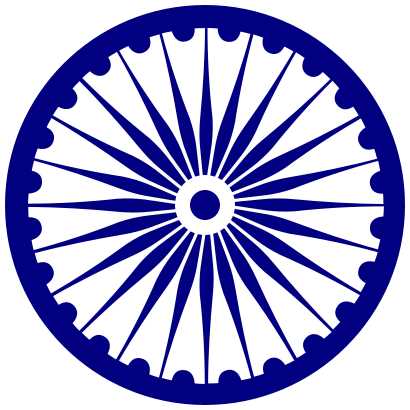The Indian flag is known as the tricolour. Because it primarily consists of three colours. However, the Ashok Chakra has one more colour. So the Indian flag has four colours in total.
The top portion of the flag is saffron (kesar) which represents sacrifice, courage & power. It stands for vigilance against evil forces like terrorism or any other evil activities that threaten the unity and integrity of India.
The white color in the middle is the symbol of peace and purity. It stands for the basic values like truth, honesty and discipline.
The third color at the hoist is deep green which stands for hope, life and prosperity. In India we associate hope with nature and its beauty, life with human beings and their achievements, and prosperity with abundance of resources such as fertile land, fertile water bodies etc.

In addition to these three colours, there is one emblem in the centre, the Ashoka Chakra, which represents Dharma, or righteousness. The Chakra is adorned with 24 spokes arranged like wheel spokes. This represents the 24 Elders entrusted by Ashoka with spreading Buddhism throughout India. The colour blue of it represents purity in thought, word, and deed; selfless service to humanity; equality before the law; freedom from fear; firmness in purpose without being obstinate; and dignity without arrogance. This flag was designed by Pingali Venkayya who also designed India's first postage stamp which was released on 31st March 1906.